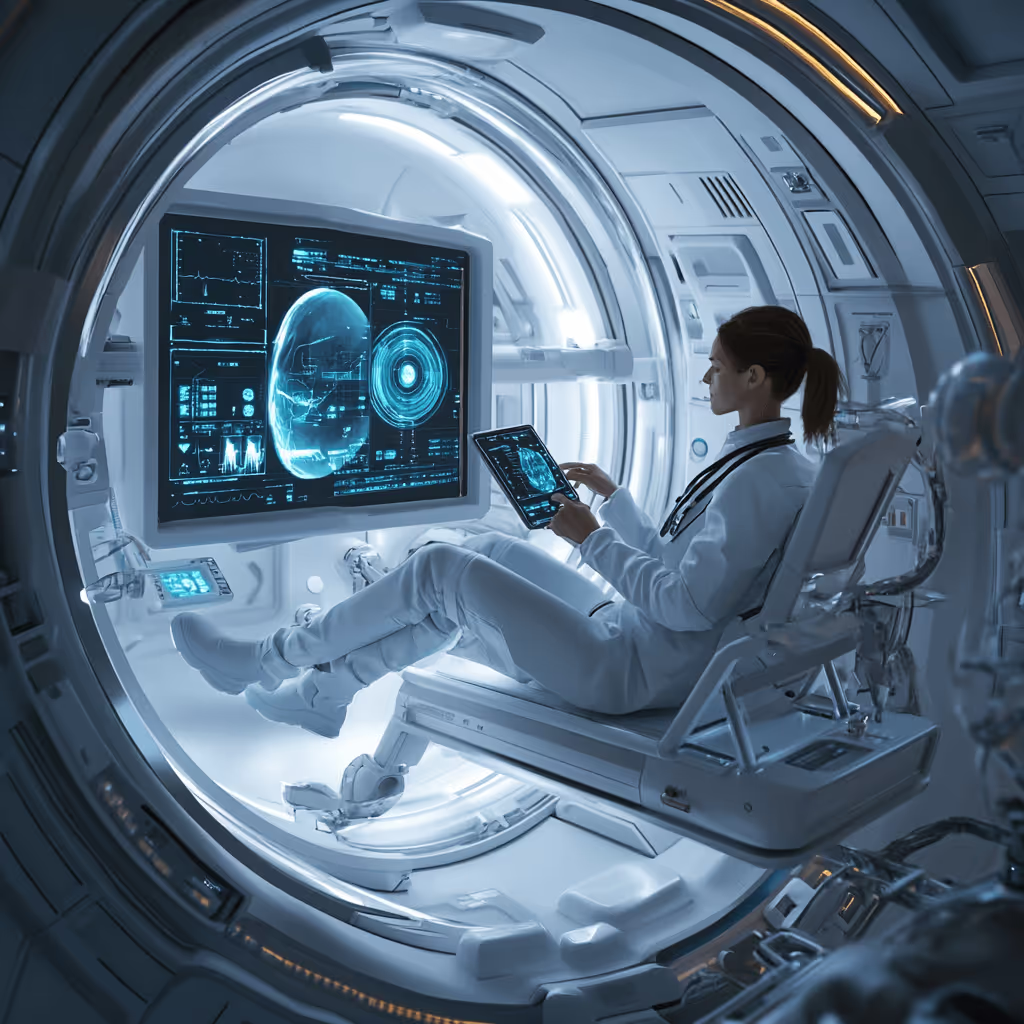February 5, 2025

As space exploration accelerates, healthcare is becoming a critical part of long-duration missions. Space agencies and private companies are preparing for extended stays in orbit, lunar bases, and future Mars colonization, all of which require medical expertise beyond traditional astronaut training. The field of space medicine is evolving rapidly to address the health challenges that astronauts face in extreme environments. The demand for healthcare professionals in space is growing, offering new career paths for doctors, nurses, biomedical researchers, and telemedicine specialists.
NASA, ESA, and private space companies such as SpaceX are conducting research on how space travel affects human health. Missions like Polaris Dawn are testing human endurance during spacewalks in extreme conditions, pushing the limits of what medicine must address in microgravity. Scientists studying simulated Mars habitats, such as NASA’s Mars Dune Alpha project, are exploring how isolation and confinement impact physical and mental well-being. These experiments are shaping the future of space healthcare, ensuring that astronauts on long-term missions receive the medical support they need (Source).
With missions lasting months or even years, having a dedicated medical professional on board is becoming a necessity. Space physicians will be essential in diagnosing and treating illnesses in microgravity, managing radiation exposure, and developing medical protocols for space environments. Nurses trained in space medicine will assist with patient care, conduct medical procedures in zero gravity, and help maintain astronauts’ physical well-being. Biomedical researchers will study how space travel affects human physiology, from muscle atrophy and bone density loss to immune system changes. Their findings will inform medical countermeasures for long-term space habitation.
Telemedicine specialists will play a crucial role by remotely supporting astronauts from Earth. Since real-time medical intervention is impossible on deep-space missions due to communication delays, telemedicine will provide remote diagnosis and guidance for emergency procedures. Medical technologists will be responsible for developing and maintaining medical devices that function in space, including portable diagnostic tools and robotic surgical systems that could one day assist with complex procedures in zero gravity (Source).
Entering the field of space medicine requires specialized training. Many professionals come from backgrounds in aerospace medicine, a field dedicated to studying the impact of spaceflight on human health. Advanced degrees in space health, biomedical research, or telemedicine technology can provide the necessary expertise. Research institutions and universities are partnering with space agencies to develop training programs that prepare healthcare professionals for the unique conditions of space. Institutions such as the European Space Agency’s Space Medicine Team are actively studying medical challenges in space and offering pathways for healthcare professionals to contribute to the field.
Opportunities for hands-on experience are growing as space agencies conduct more simulations of space missions. Research programs focusing on extreme environments, such as deep-sea habitats and Antarctic research stations, are helping scientists understand how the human body responds to isolation, confined living, and harsh conditions. Healthcare professionals interested in space medicine can gain valuable experience by participating in such programs or contributing to research on human adaptation to space travel (Source).
The advancements in space medicine are not only preparing astronauts for long-duration missions but also bringing medical innovations to Earth. Telemedicine, which has become a vital tool for space missions, is now widely used in remote areas and disaster zones where access to medical professionals is limited. Medical technology developed for space, such as portable ultrasound devices and remote surgical systems, is improving healthcare access in underserved regions. Research on microgravity’s effects on bone density is leading to new treatments for osteoporosis, while studies on muscle atrophy in space are informing rehabilitation therapies for patients on Earth.
As humanity moves toward becoming a spacefaring civilization, the role of healthcare professionals will continue to expand beyond Earth’s atmosphere. Space medicine is no longer a theoretical field but a practical necessity for sustaining human life beyond our planet. The next generation of healthcare professionals will play a crucial role in ensuring the safety, health, and well-being of astronauts as we push further into the cosmos.
Join our weekly digest and be the first one to know about new articles.